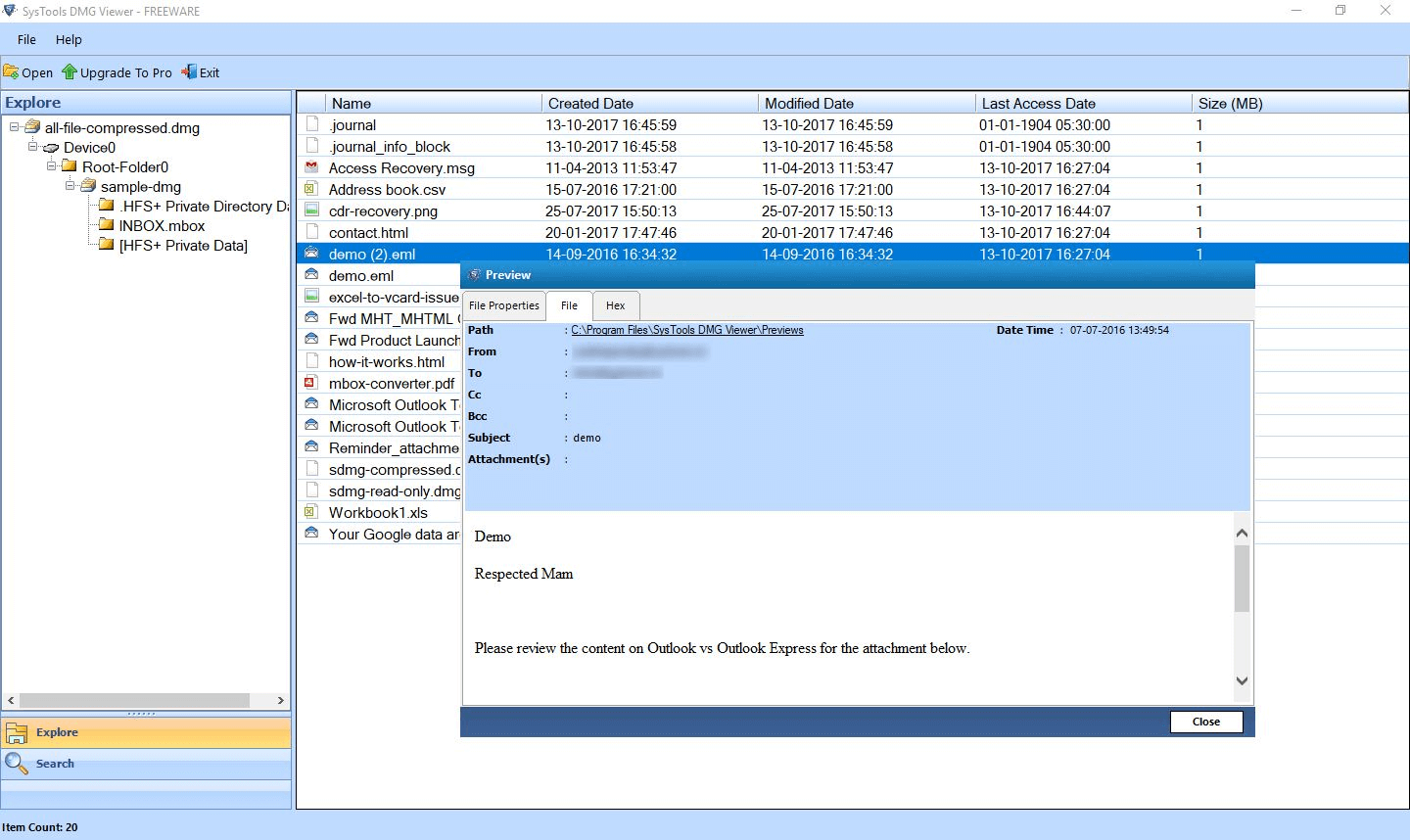Electron How To Size Dmg Installer Window
- Electron How To Size Dmg Installer Window Download
- Dmg Installer For Windows
- Electron How To Size Dmg Installer Windows 10
- Electron How To Size Dmg Installer Window 1
The top-level dmg key contains set of options instructing electron-builder on how it should build DMG.
Dec 30, 2016 Packaging an electron app simply means creating a desktop installer (dmg, exe, deb etc). Now if you decide to go around manually packaging your app, you’re gonna have a bad time. On windows build. Change Windows Size in Electron. Ask Question Asked 2 years, 4 months ago. Active 2 years, 4 months ago. Viewed 10k times 7. I'm very new to electron, but loving it. However, i am stuck on one thing, so after some guidance if possible. I have a small test app, that i.
- May 12, 2015 Then you can run yarn dist (to package in a distributable format (e.g. Dmg, windows installer, deb package)) or yarn pack (only generates the package directory without really packaging it. This is useful for testing purposes). To ensure your native dependencies are always matched electron version, simply add script 'postinstall': 'electron-builder install-app-deps' to your package.json.
- In this article, you will learn how to create an installer for windows using the electron-winstaller module which uses Squirrel, the installation and update framework for Windows desktop apps. Prepare your work area. And with this, we don't mean that you should clean your computer.
backgroundString - The path to background image (default:build/background.tifforbuild/background.pngif exists). The resolution of this file determines the resolution of the installer window. If background is not specified, usewindow.size. Default locations expected background size to be 540x380. See: DMG with Retina background support.backgroundColorString - The background color (accepts css colors). Defaults to#ffffff(white) if no background image.iconString - The path to DMG icon (volume icon), which will be shown when mounted, relative to the build resources or to the project directory. Defaults to the application icon (build/icon.icns).iconSize=80Number - The size of all the icons inside the DMG.iconTextSize=12Number - The size of all the icon texts inside the DMG.title=${productName} ${version}String - The title of the produced DMG, which will be shown when mounted (volume name).Macro
${productName},${version}and${name}are supported.contentsArray<DmgContent> - The content — to customize icon locations. The x and y coordinates refer to the position of the center of the icon (at 1x scale), and do not take the label into account.xNumber - The device-independent pixel offset from the left of the window to the center of the icon.yNumber - The device-independent pixel offset from the top of the window to the center of the icon.type“link” “file” “dir”nameString - The name of the file within the DMG. Defaults to basename ofpath.pathString - The path of the file within the DMG.
format=UDZO“UDRW” “UDRO” “UDCO” “UDZO” “UDBZ” “ULFO” - The disk image format.ULFO(lzfse-compressed image (OS X 10.11+ only)).window- The DMG windows position and size.x=400Number - The X position relative to left of the screen.y=100Number - The Y position relative to top of the screen.widthNumber - The width. Defaults to background image width or 540.heightNumber - The height. Defaults to background image height or 380.
internetEnabled=falseBoolean - Whether to create internet-enabled disk image (when it is downloaded using a browser it will automatically decompress the image, put the application on the desktop, unmount and remove the disk image file).sign=falseBoolean - Whether to sign the DMG or not. Signing is not required and will lead to unwanted errors in combination with notarization requirements.
Inherited from TargetSpecificOptions:
artifactNameString - The artifact file name template.publishThe publish options.
DMG License¶
To add license to DMG, create file license_LANG_CODE.txt in the build resources. Multiple license files in different languages are supported — use lang postfix (e.g. _de, _ru)). For example, create files license_de.txt and license_en.txt in the build resources.If OS language is german, license_de.txt will be displayed. See map of language code to name.
You can also change the default button labels of the DMG by passing a json file named licenseButtons_LANG_CODE.json. The german file would be named: licenseButtons_de.json.The contain file should have the following format:
The top-level nsis key contains set of options instructing electron-builder on how it should build NSIS target (default target for Windows).
These options also applicable for Web installer, use top-level nsisWeb key.
oneClick=trueBoolean - Whether to create one-click installer or assisted.perMachine=falseBoolean - Whether to show install mode installer page (choice per-machine or per-user) for assisted installer. Or whether installation always per all users (per-machine).If
oneClickistrue(default): Whether to install per all users (per-machine).If
oneClickisfalseandperMachineistrue: no install mode installer page, always install per-machine.If
oneClickisfalseandperMachineisfalse(default): install mode installer page.allowElevation=trueBoolean - assisted installer only. Allow requesting for elevation. If false, user will have to restart installer with elevated permissions.allowToChangeInstallationDirectory=falseBoolean - assisted installer only. Whether to allow user to change installation directory.
installerIconString - The path to installer icon, relative to the build resources or to the project directory. Defaults tobuild/installerIcon.icoor application icon.uninstallerIconString - The path to uninstaller icon, relative to the build resources or to the project directory. Defaults tobuild/uninstallerIcon.icoor application icon.installerHeader=build/installerHeader.bmpString - assisted installer only.MUI_HEADERIMAGE, relative to the build resources or to the project directory.installerHeaderIconString - one-click installer only. The path to header icon (above the progress bar), relative to the build resources or to the project directory. Defaults tobuild/installerHeaderIcon.icoor application icon.installerSidebarString - assisted installer only.MUI_WELCOMEFINISHPAGE_BITMAP, relative to the build resources or to the project directory. Defaults tobuild/installerSidebar.bmpor${NSISDIR}ContribGraphicsWizardnsis3-metro.bmp. Image size 164 × 314 pixels.uninstallerSidebarString - assisted installer only.MUI_UNWELCOMEFINISHPAGE_BITMAP, relative to the build resources or to the project directory. Defaults toinstallerSidebaroption orbuild/uninstallerSidebar.bmporbuild/installerSidebar.bmpor${NSISDIR}ContribGraphicsWizardnsis3-metro.bmpuninstallDisplayName=${productName} ${version}String - The uninstaller display name in the control panel.
includeString - The path to NSIS include script to customize installer. Defaults tobuild/installer.nsh. See Custom NSIS script.scriptString - The path to NSIS script to customize installer. Defaults tobuild/installer.nsi. See Custom NSIS script.licenseString - The path to EULA license file. Defaults tolicense.txtoreula.txt(or uppercase variants). In addition totxt,rtfandhtmlsupported (don't forget to usetarget=”_blank”` for links).Multiple license files in different languages are supported — use lang postfix (e.g.
_de,_ru)). For example, create fileslicense_de.txtandlicense_en.txtin the build resources. If OS language is german,license_de.txtwill be displayed. See map of language code to name.Appropriate license file will be selected by user OS language.
artifactNameString - The artifact file name template. Defaults to${productName} Setup ${version}.${ext}.deleteAppDataOnUninstall=falseBoolean - one-click installer only. Whether to delete app data on uninstall.differentialPackageBoolean - Defaults totruefor web installer (nsis-web)
displayLanguageSelector=falseBoolean - Whether to display a language selection dialog. Not recommended (by default will be detected using OS language).installerLanguagesArray<String> String - The installer languages (e.g.en_US,de_DE). Change only if you understand what do you do and for what.languageString - LCID Dec, defaults to1033(English - United States).multiLanguageInstallerBoolean - Whether to create multi-language installer. Defaults tounicodeoption value.packElevateHelper=trueBoolean - Whether to pack the elevate executable (required for electron-updater if per-machine installer used or can be used in the future). Ignored ifperMachineis set totrue.preCompressedFileExtensions=['.avi', '.mov', '.m4v', '.mp4', '.m4p', '.qt', '.mkv', '.webm', '.vmdk']Array<String> String - The file extension of files that will be not compressed. Applicable only forextraResourcesandextraFilesfiles.unicode=trueBoolean - Whether to create Unicode installer.guidString - See GUID vs Application Name.warningsAsErrors=trueBoolean - IfwarningsAsErrorsistrue(default): NSIS will treat warnings as errors. IfwarningsAsErrorsisfalse: NSIS will allow warnings.runAfterFinish=trueBoolean - Whether to run the installed application after finish. For assisted installer corresponding checkbox will be removed.
createDesktopShortcut=trueBoolean “always” - Whether to create desktop shortcut. Set toalwaysif to recreate also on reinstall (even if removed by user).createStartMenuShortcut=trueBoolean - Whether to create start menu shortcut.menuCategory=falseBoolean String - Whether to create submenu for start menu shortcut and program files directory. Iftrue, company name will be used. Or string value.shortcutNameString - The name that will be used for all shortcuts. Defaults to the application name.
Inherited from TargetSpecificOptions:
artifactNameString - The artifact file name template.publishThe publish options.
Unicode enabled by default. Large strings are supported (maximum string length of 8192 bytes instead of the default of 1024 bytes).
32 bit + 64 bit¶
If you build both ia32 and x64 arch (--x64 --ia32), you in any case get one installer. Appropriate arch will be installed automatically.The same applied to web installer (nsis-webtarget).
Dmg file is the disc image file which is widely used by Mac systems. Most of Mac operating systems and applications are distributed in dmg files. On Windows PC, it is very convenient to manipulate dmg files with PowerISO. You can open dmg file, convert it to iso file, or burn it to a CD / DVD disc. Crear un iso de dmg 2017. Otra manera de crear un USB Bootable, y la que recomienda Canonical, es hacerlo desde el Terminal.Lo haremos siguiendo estos pasos: Si no tenemos la imagen ISO de Ubuntu descargada, la descargamos.
Web Installer¶
To build web installer, set target to nsis-web. Web Installer automatically detects OS architecture and downloads corresponding package file. So, user don’t need to guess what installer to download and in the same time you don’t bundle package files for all architectures in the one installer (as in case of default nsis target). It doesn’t matter for common Electron application (due to superb LZMA compression, size difference is acceptable), but if your application is huge, Web Installer is a solution.
To customize web installer, use the top-level nsisWeb key (not nsis).
If for some reasons web installer cannot download (antivirus, offline):
- Download package file into the same directory where installer located. It will be detected automatically and used instead of downloading from the Internet. Please note — only original package file is allowed (checksum is checked).
- Specify any local package file using
--package-file=path_to_file.
Custom NSIS script¶
Two options are available — include and script. script allows you to provide completely different NSIS script. For most cases it is not required as you need only to customise some aspects, but still use well-tested and maintained default NSIS script. So, include is recommended.
Keep in mind — if you customize NSIS script, you should always state about it in the issue reports. And don’t expect that your issue will be resolved.
- Add file
build/installer.nsh. Define wanted macro to customise:
customHeader,preInit,customInit,customUnInit,customInstall,customUnInstall,customRemoveFiles,customInstallMode.Example
BUILD_RESOURCES_DIRandPROJECT_DIRare defined.buildis added asaddincludedir(i.e. you don’t need to useBUILD_RESOURCES_DIRto include files).build/x86-unicodeandbuild/x86-ansiare added asaddplugindir.- File associations macro
registerFileAssociationsandunregisterFileAssociationsare still defined. - All other electron-builder specific flags (e.g.
ONE_CLICK) are still defined.
Use ${isUpdated}.
GUID vs Application Name¶
Windows requires to use registry keys (e.g. INSTALL/UNINSTALL info). Squirrel.Windows simply uses application name as key.But it is not robust — Google can use key Google Chrome SxS, because it is a Google.
So, it is better to use GUID.You are not forced to explicitly specify it — name-based UUID v5 will be generated from your appId or name.It means that you should not change appId once your application in use (or name if appId was not set). Application product name (title) or description can be safely changed.
You can explicitly set guid using option nsis.guid, but it is not recommended — consider using appId.
It is also important to set the Application User Model ID (AUMID) to the appId of the application, in order for notifications on Windows 8/8.1 to function and for Window 10 notifications to display the app icon within the notifications by default. The AUMID should be set within the Main process and before any BrowserWindows have been opened, it is normally the first piece of code executed: app.setAppUserModelId(appId)

Portable¶
To build portable app, set target to portable (or pass --win portable).
Electron How To Size Dmg Installer Window Download
For portable app, following environment variables are available:
PORTABLE_EXECUTABLE_DIR- dir where portable executable located.PORTABLE_EXECUTABLE_APP_FILENAME- sanitized app name to use in file paths.
Common Questions¶
Dmg Installer For Windows
It is very specific requirement. Do not do if you are not sure. Add custom macro:
Electron How To Size Dmg Installer Windows 10
Yes, you need to switch to assisted installer (not default one-click).
